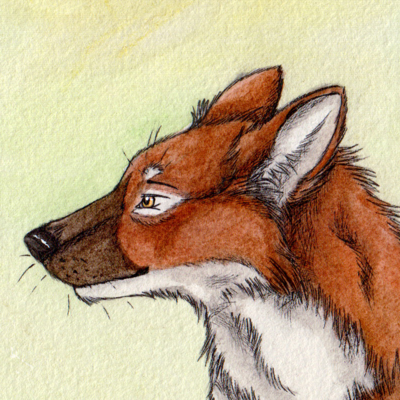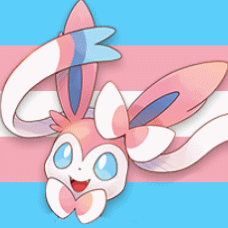What set Dragon Age II apart from its competition was abundance. If you wanted to pursue a queer relationship, you had exactly the same number of potential companions as someone looking to pursue a straight relationship. And these relationships would be as deeply drawn and as beautifully animated as the straight ones.
I found this game mechanic, now dubbed “playersexuality,” liberating. In other video games, my favourite characters were often locked away from me by my choice of gender. If I wanted to, say, pursue Tali’Zorah in Mass Effect, I had to start the game over as a male protagonist. No such calculations were necessary in Dragon Age II. And it wasn’t just the freedom I appreciated: as a recently out bisexual, I was also smitten with a game that let me play the hero alongside a group of queer, pan and bisexual characters.
Since Dragon Age II, more and more games use a playersexual approach to romance, from indie games like Stardew Valley (2016) and Boyfriend Dungeon (2021), to big-budget role-playing games like Baldur’s Gate 3 (2023). The fourth installment in the Dragon Age series, The Veilguard (2024), has also re-embraced playersexuality, with all seven of the companions available for a player character to pursue.
But while playersexuality attracted me to the Dragon Age franchise, it has also been a lightning rod for very disparate groups of gamers. Conservative players, for example, argued that the LGBTQ2S+ relationships in Baldur’s Gate 3 were shoehorned in to “satisfy diversity quotas.” Players of Dragon Age II complained that the companion Anders would always flirt with Hawke (male or female), which made it impossible to avoid queer content; they derided the all-bisexual cast as unrealistic, and as abandoning Bioware’s “main demographic” (straight male gamers).
I actually agree somewhat that it does make it slightly less queer because queerness is about going against the non free norms of society or at least making people more free. One part of queerness that I think often gets overlooked in games is agency of characters, therefore making them all only interested in the player or at least have an implicit bias towards them does dull the queerness somewhat. It doesn’t remove it entirely, just it is frustrating.
Then again I personally do find it frustrating when we can’t talk to characters deeply about what both they and I want and enjoy their company in various ways, so I think the problem is one of nuance and variability which can be extremely difficult to do in relationships in games because systematising relationships and the all or nothing of conventional relationship structures/philosophies (monogamy) makes it difficult to have or do in games, I have never really seen a game pull off relationships in general well, even those that let you have any form of nonmonogamy are still focused on the player’s agency for the most part, not that of the characters.
I would love to be able to have conversations about consent, see and respect character’s autonomy and actually spend time doing more than sex or kissing with friends, partners etc in games.
The only four games where I enjoyed relationships with characters so far have been:
- Cute Demon Crashers because it asked for and respected my consent.
- Haven because it was a pre-existing relationship and so had none of the messiness of trying to ‘win’ a character’s affection, more just build their bond more.
- The Outer Worlds because there was a sex repulsed asexual character who didn’t have a romantic relationship with you but you could help her have one with someone else and even tell her you are ace yourself.
- Fallout London because one of the companion characters makes it very clear they do not want that kind of relationship with you or anybody and if you try the game forces a massive drop in relationship points and forces them to leave your party temporarily which is excellent gameplay and narrative congruence.
But sadly these kinds of relationships are lacking in games, just making a character queer isn’t enough imo and developers should really try not to make it a linear path where you give them enough gifts or do enough actions that they like and a relationship/sex/whatever falls out, but I do not know how possible that is unless/even if you spend along time really thinking about and implimenting these things.
We have come a long way, but we do have a long way to go still and just who or how a character is interested in doesn’t really seem like it matters much in the grand scheme of things when there’s much more nuance and agency that could be given to them and the relationships you have with them in general both agency and nuance for the characters and the player.
Something that’s interesting to me from a writing standpoint would be the difference between how playersexual characters are written from bisexual or pansexual ones. I’ve never seen a playersexual game have the characters actually acknowledge their openness to partners of different genders, they almost always just ignore the topic entirely. I’d be interested in seeing “playersexual” games actually put in the work to establish that in their world, everyone is open to romancing/banging everyone because that’s just how their world is; sort of a pan-normativity. Or other cool explanations! Most of the time it feels more like everyone is straight except towards you, which somehow still feels like a straight male power fantasy.
This is an excellent point and we wholeheartedly agree!
I love it. More please.
I think there’s a time and place for both. In the beginning being able to have ANY queer sexuality in games was amazing, and having playersexual games levelled the playing field for everyone. On the other hand when done well having characters with their own defined sexualities can work even better in the right context. Cyberpunk did this fairly well. It was nice finding some exclusively gay characters, some hetero. The bi representation could have been better but the fun was finding oh wow this person is their own character with boundaries and personality and preferences! As weird as it sounds it was nice getting rejected by Panam and made her feel more real. I was like ok, cool! She’s not into it but not super weirded out. And getting to know Judy was wonderful! She is an explicitly gay woman and her character was written as such and it felt like it. Her queerness was REAL. It would have been a bummer if there were only straight romances to pursue but that wasn’t the case. It obviously takes more time to develop a specifically tailored romance line for every possible sexuality though so it’s understandable when a developer wants to include everyone and just makes the npcs into you no matter what. And sometimes the game just doesn’t have very deep characters anyway so why not? As far as the straight male audience being upset they have to deal with unwanted advances by men… heh. Damn that must suck huh. looks directly into the camera
I was telling my sister that as much as Cyberpunk 2077 thought of every sexuality and gender… They did not have a single bi/pan character in the game. I am not counting the sex robots as characters.
You also can’t romance Claire, afaik, so there’s no trans romance options.
Perhaps the reason for this is as simple as it being a deliberate choice by the developers for replayability reasons. It’s probably pretty common to choose a different gender for the second playthrough - and by limiting characters to being interested in one gender only, this results in the maximum amount of novelty the second time a player experiences the game.
Or maybe I’m overthinking this and it’s just an oversight.
Having just replayed DA2, Anders is a poor example. It’s written (or at least the player choice tree) was so light that just including him in the party meant you had to grapple with acceptance or rejection to just move the story along. With the other characters there are at least two separate flirt checks that need to be met beforehand.
I will say, moving into Inquisition, I am disappointed they ratcheted back so much on player choice. They did so well with DA2 it almost feels like they just listened to the loudest feedback.
Players of Dragon Age II complained that the companion Anders would always flirt with Hawke (male or female), which made it impossible to avoid queer content
oh no, won’t someone please think of the bigots? their feelings are getting hurt!
“Oh no, I’m playing a game with queer content and I can’t avoid the queer content! Oh nooo…”
The only time playersexuality bothered me was in BG3, and it was only because I couldn’t go 20 minutes without someone trying to bone me.
It was just too unrealistic and broke the immersion 😔
I especially dislike that you can’t do friendship in this game without running the risk of having to reject or accept romantic advances. Like I just wanted to dance with Wyll because it sounded fun and I played a free spirited druid, I didn’t mean it romantically 😔
And then he’s so sad when you turn him down afterwards. And whoever you were romancing gets so upset that you danced with him.
If you played right at release, there was a bug that was causing that.
I explicitly remember it being a big annoyance of mine in my first playthrough, but it’s fixed now.
Huh. I’ll have to try it again, then.
There will never be a solution that satisfies (heh) everyone. I’m just glad that inclusivity exists in gaming, even when it’s done poorly or awkwardly.
Yes, this is great, but queerness in videogames just feels rather limited and binary still. Verilybitchie made an in-depth video about it:
Many of the arguments against playersexuality, moreover, are tinged with biphobia. […] There is, in some of these complaints, a sense that a bisexual character just isn’t queer enough to count.
This opens and closes the case for me. I fully support the creation and advancement of digital narratives that take other approaches to PC-NPC sexuality, but to characterize something as benign as playersexuality as “erasure” is an overstatement of the problem and feels disregarding of actual examples of malignant erasure.
Stardew Valley is reasonably good, but I don’t like that they force me into a binary gender choice for my PC
Agreed. On PC and Android this can be fixed with mods but I do agree that it should be fixed within the core of the game. Funnily enough there is technically already an agender character in the game: the dwarf.
How do you add a mod for that on Android?
There is an installer for SMAPI somewhere on github, I will try to find it if you’d like.
I dig more choices, but as someone that prefers to engage in zero relationships in a game, the lazy trend of making them spring from whatever character the player doesn’t treat like shit does bug me. I just want to be nice and continue the game, not feel like I’m leading on some NPC. I love Stardew, but it’s pretty bad with this.
Um… have you met some folks? If you don’t treat them like shite, they are so desperate for positive personal interactions they think (or hope/desperately wish for) that you are flirting with you.
I don’t play video games to reenact real life awkwardness.
I’m in this picture and I don’t like it.













